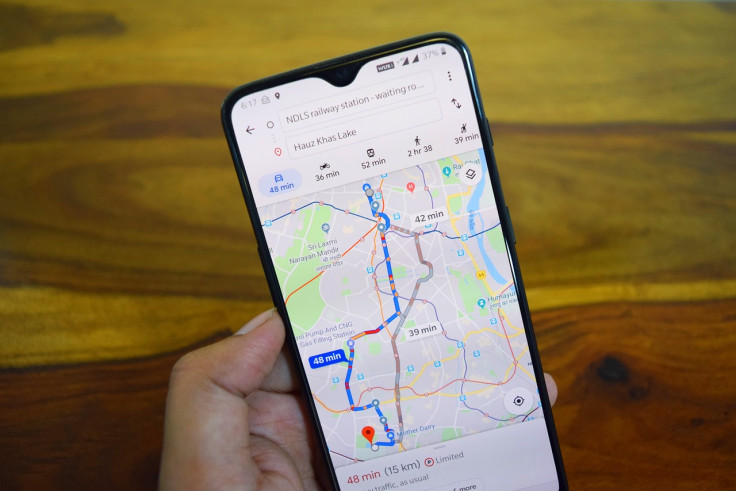New Accessibility Features Added To Google Maps, Search, Chrome, More
Google is rolling out a new set of accessibility features that are designed to improve user experience for disabled users.

Google is rolling out a slew of new accessibility features and updates to improve the experience for its disabled users. The new features will be added to Google Maps, Search and other Google products.
Google has a reputation for adding new features to help the disabled community from time to time. In a new blog post, Google noted that the newly added features will "make accomplishing daily tasks faster and easier".
We’ve rolled out new #accessibility features from taking a selfie 📸 to easily finding and supporting #disabled-owned businesses in @GoogleMaps.
— Google Accessibility (@googleaccess) October 17, 2023
Read all the new updates and features here: https://t.co/QQ95QdKX8z #Google #NDEAM #A11y
Furthermore, the company explains that these new features are built with and for people with disabilities. So, let's check out the new accessibility features introduced by the American tech giant.
New accessibility features for Android users
The new features are being rolled out to Android users worldwide. These new features will be available in Google Maps, Chrome, Search and more.
Finding, supporting disabled-owned businesses in Map, Search
A new identity attribute for the disability community has been added to Google Maps and Search, giving customers more details about a business. Moreover, merchants can now self-identify as a member of the disabled community.
Google teamed up with Lavant Consulting and its internal Disability Alliance Employee Resource Group to develop the new feature. Businesses will have the option to identify as disabled-owned in their Business Profile. This attribute will appear in their listings in Maps and Search.
Wheelchair-accessible walking routes
The option to request wheelchair-accessible walking routes is rolling out globally on both Android and iOS. Aside from this, you can get stair-free routes simply by requesting walking directions in Maps. This is also helpful for people travelling with strollers or luggage.
This feature is an improvement to the wheelchair-accessible transit navigation option in Maps that shows step-free transit routes. If you select the wheelchair-accessible option in your transit preferences, Google will automatically apply this to walking routes as well.
Google’s New Accessibility Features that Make Life Easier✨
— Abdul (@AbdulSeSekho) October 17, 2023
Read More👇https://t.co/o3gHOgOzIc#Google #Googleupdate #googlefeatures #Disability #disabilityawareness #betterlife #tuesdayvibe #TuesdayFeeling #IITs #Orange #TacoTuesday #viral #technews #tech#techtrendsupdate pic.twitter.com/IFopGkz5lX
The feature is headed to Android Auto and cars soon. Using Android Auto, you will be able to check whether your destination has an accessible washroom, parking, seating and step-free entrance.
Google Lens screen reading in Maps
Google is further enhancing the Lens in Maps feature, which uses AI and AR to help people navigate. Thanks to its screen reader capabilities. the feature will be more accessible for low-vision or blind individuals.
The feature has already started rolling out to iOS, but it is set to arrive on Android later this year. Low-vision or blind users can access audible information about places like ATMs, transit stations and restaurants around them by tapping on the camera icon in the search bar and lifting the camera.
More options now available for customising Assistant Routines
Assistant Routines and Action Blocks are designed to help users get information or automate daily tasks for efficiency. Now, you can create customisable Action Blocks for Assistant Routines.
You can not only set an image to a shortcut but also adjust the size of the shortcut on the home screen. According to Google, this will come in handy for those who have cognitive differences and disabilities.
A more accessible camera in Pixel devices
Much to the relief of the low-vision community, Google has added a Magnifier app to Pixel cameras. Those with low vision sometimes use their camera to see better or read better.
The Magnifier for the camera enables users to zoom in on something like a magnifying glass. You can use it to read small text, signboards from a distance and more.
Also, the feature can improve the legibility of text when you are reading a menu or a document. The Magnifier app offers the ability to adjust controls like brightness, contrast and colour filters. You can head straight to Google Play to install Magnifier on your Pixel 5 and newer Pixel phones, excluding the Pixel Fold.
The company is reportedly gearing up to bring new AI features to the newly launched Pixel 8 series. In addition to this, Google recently introduced new AI-backed search capabilities to help doctors.
© Copyright IBTimes 2025. All rights reserved.






















